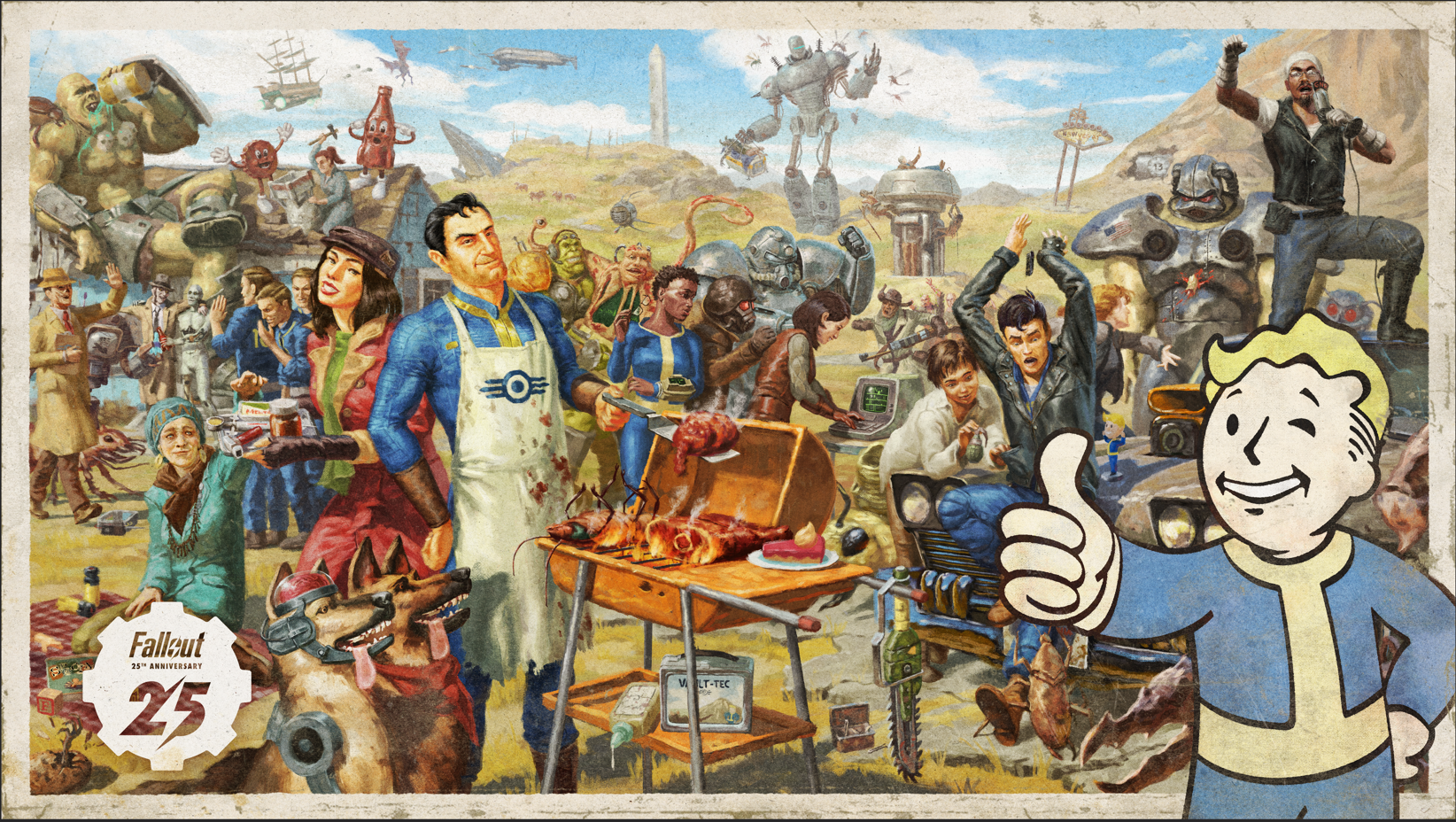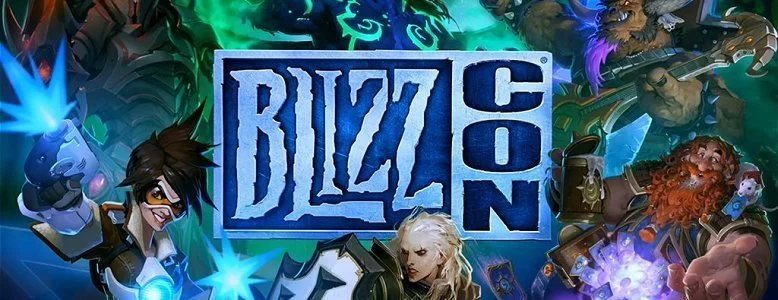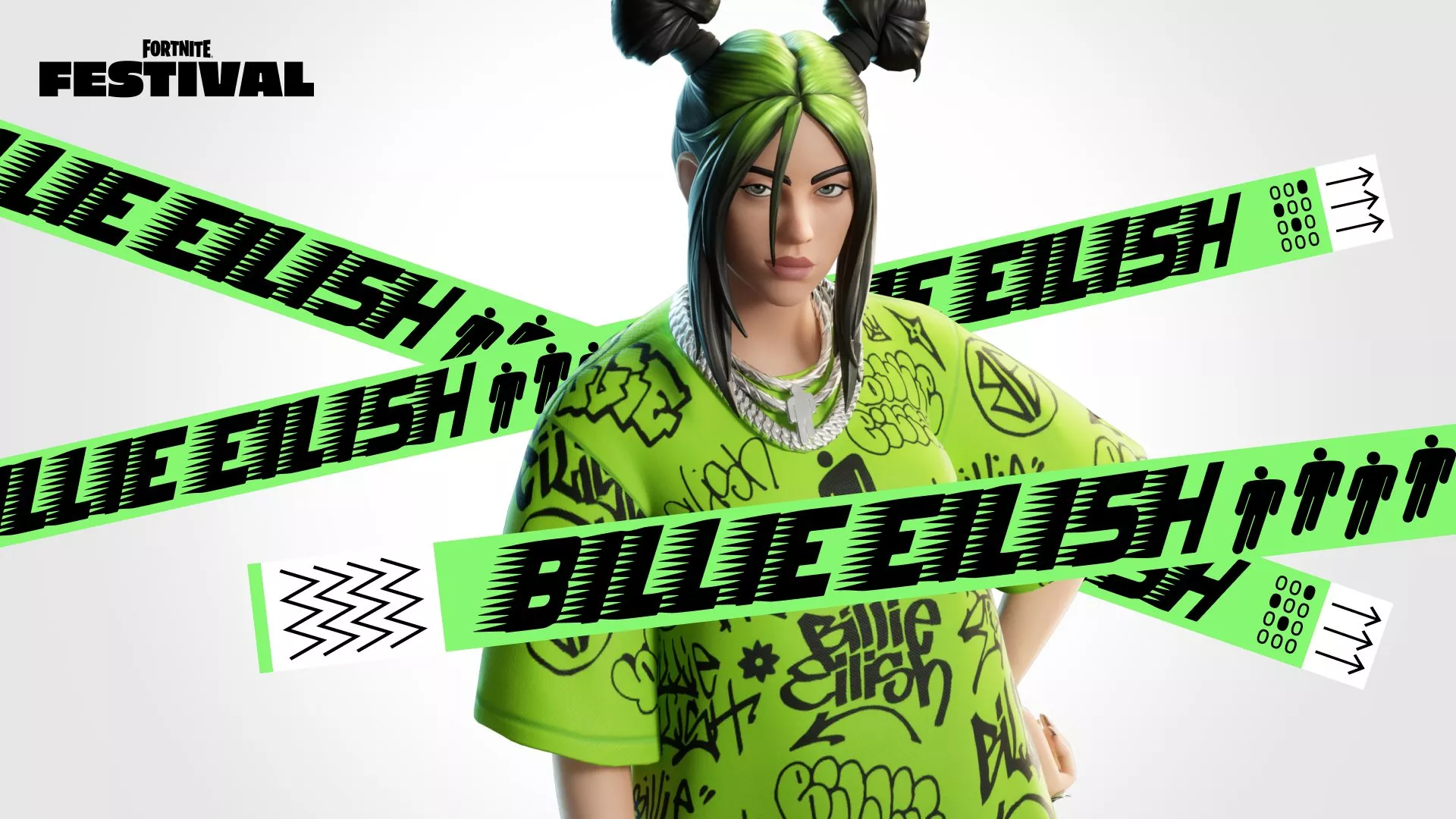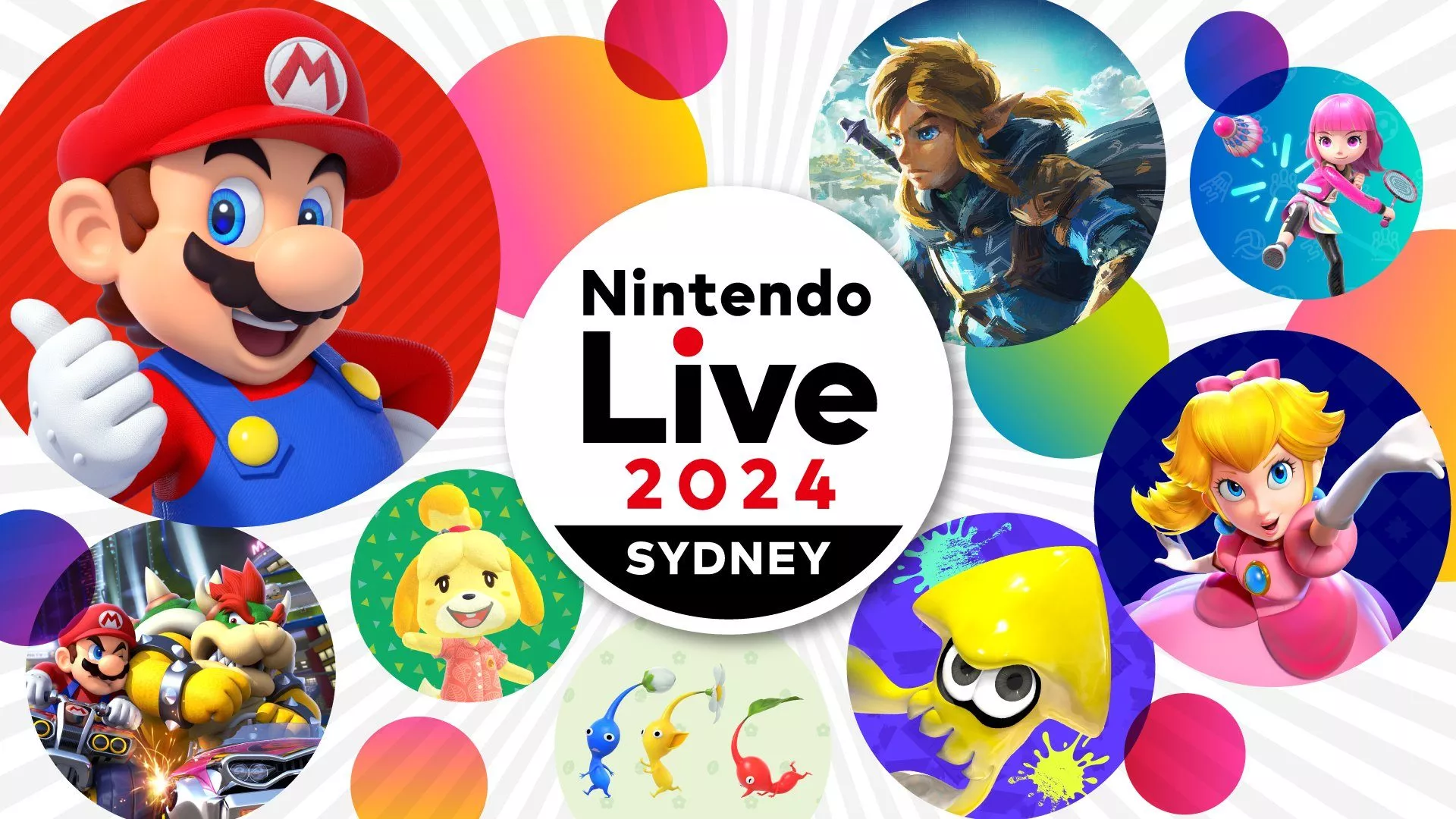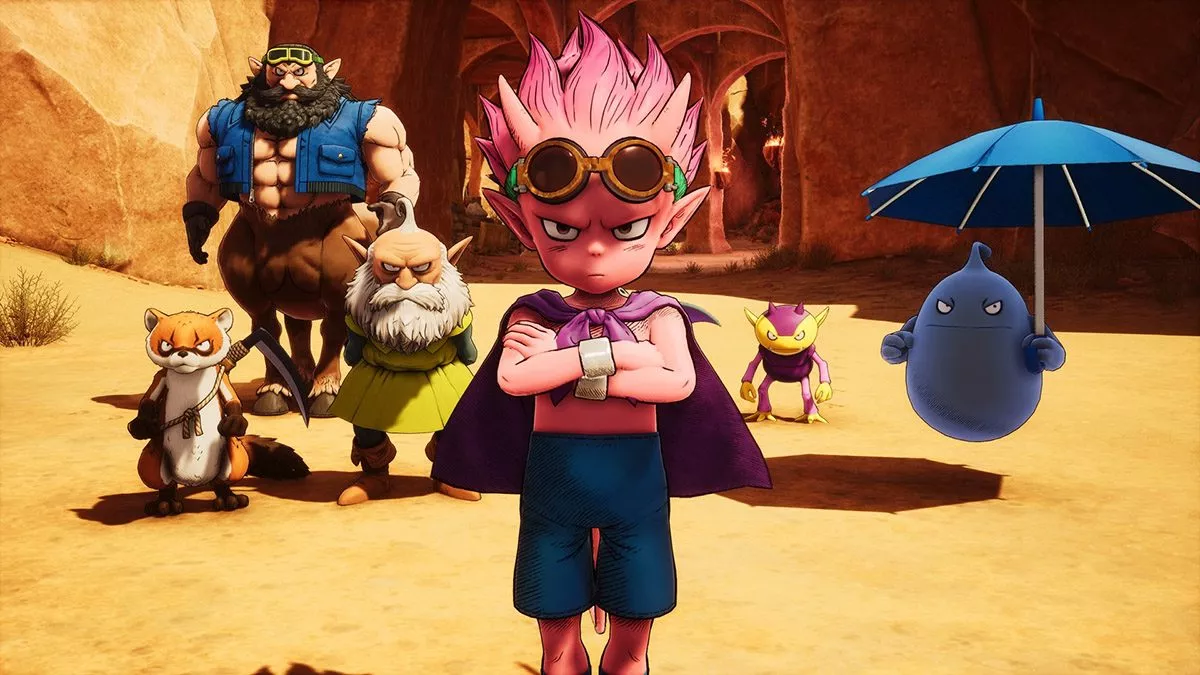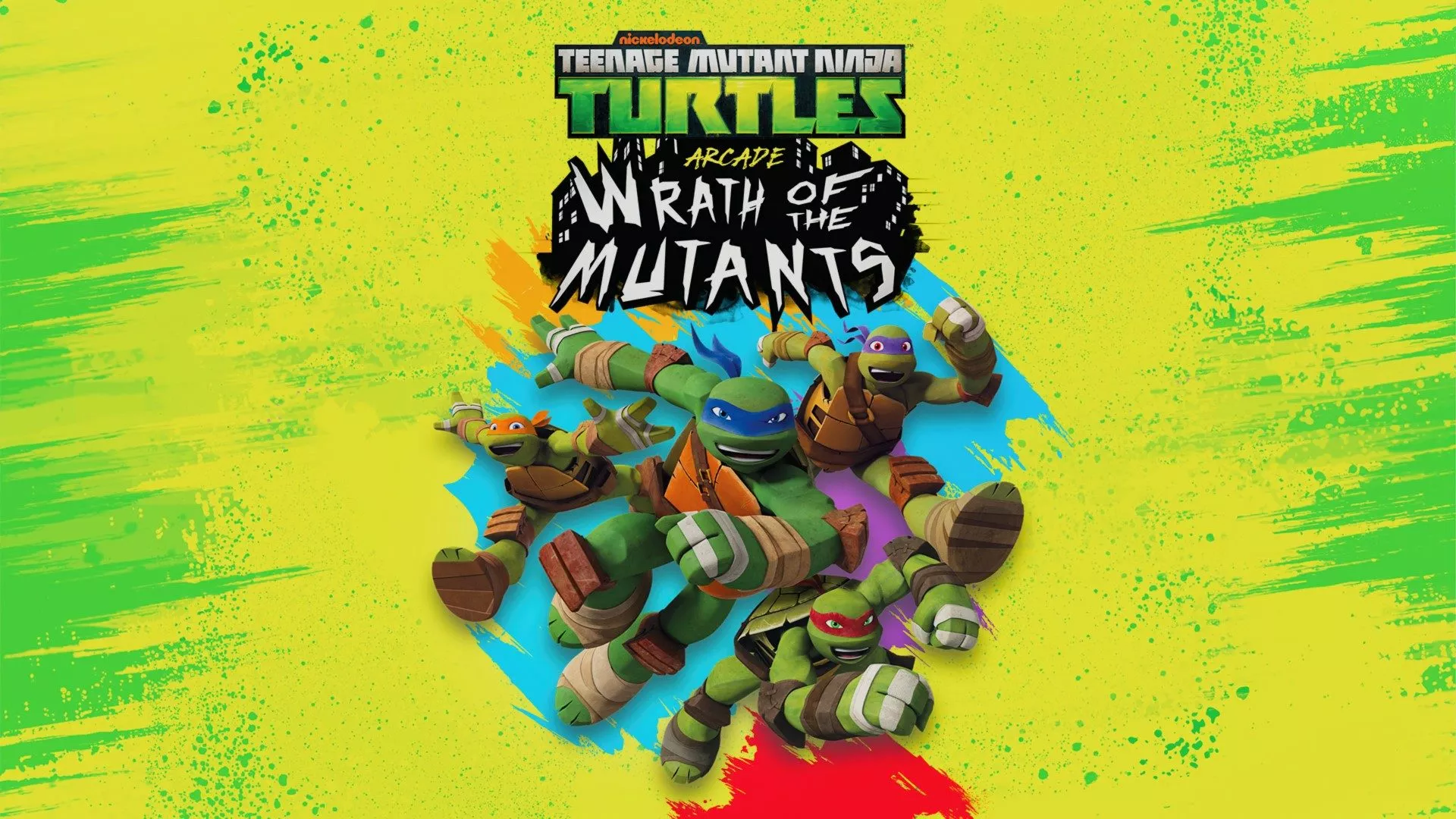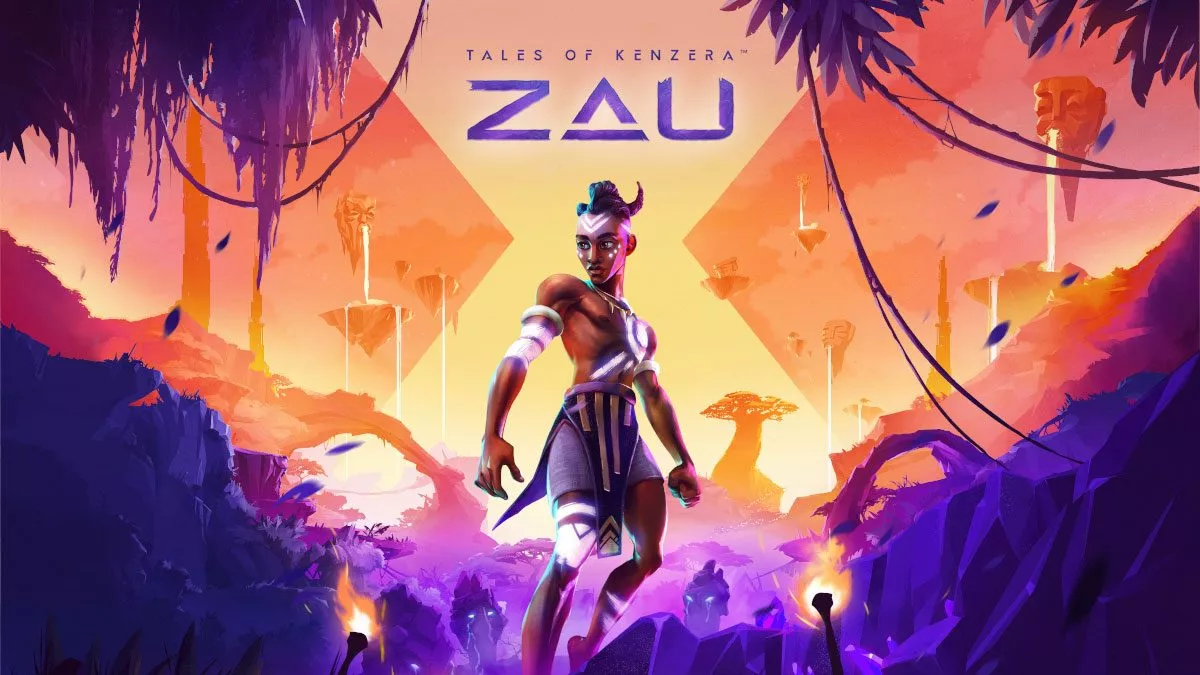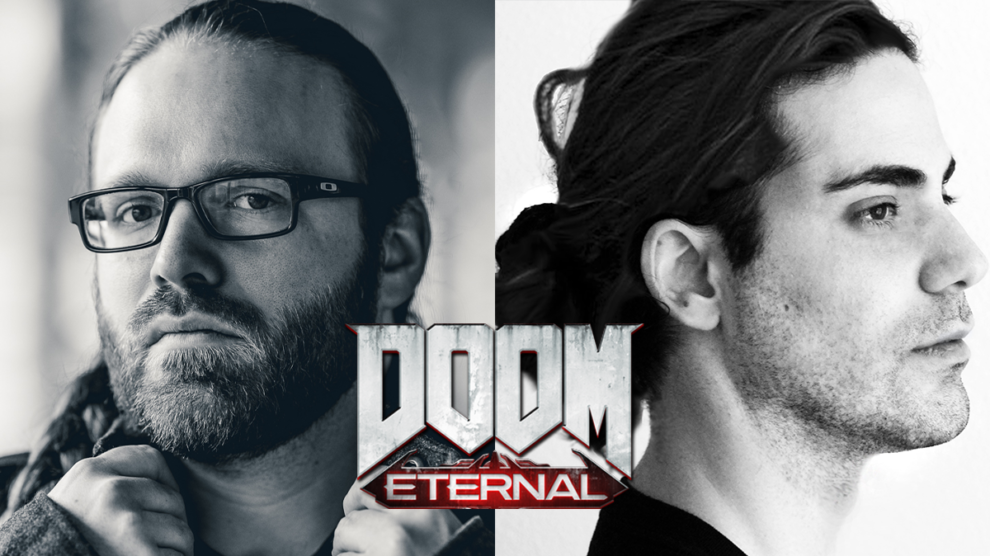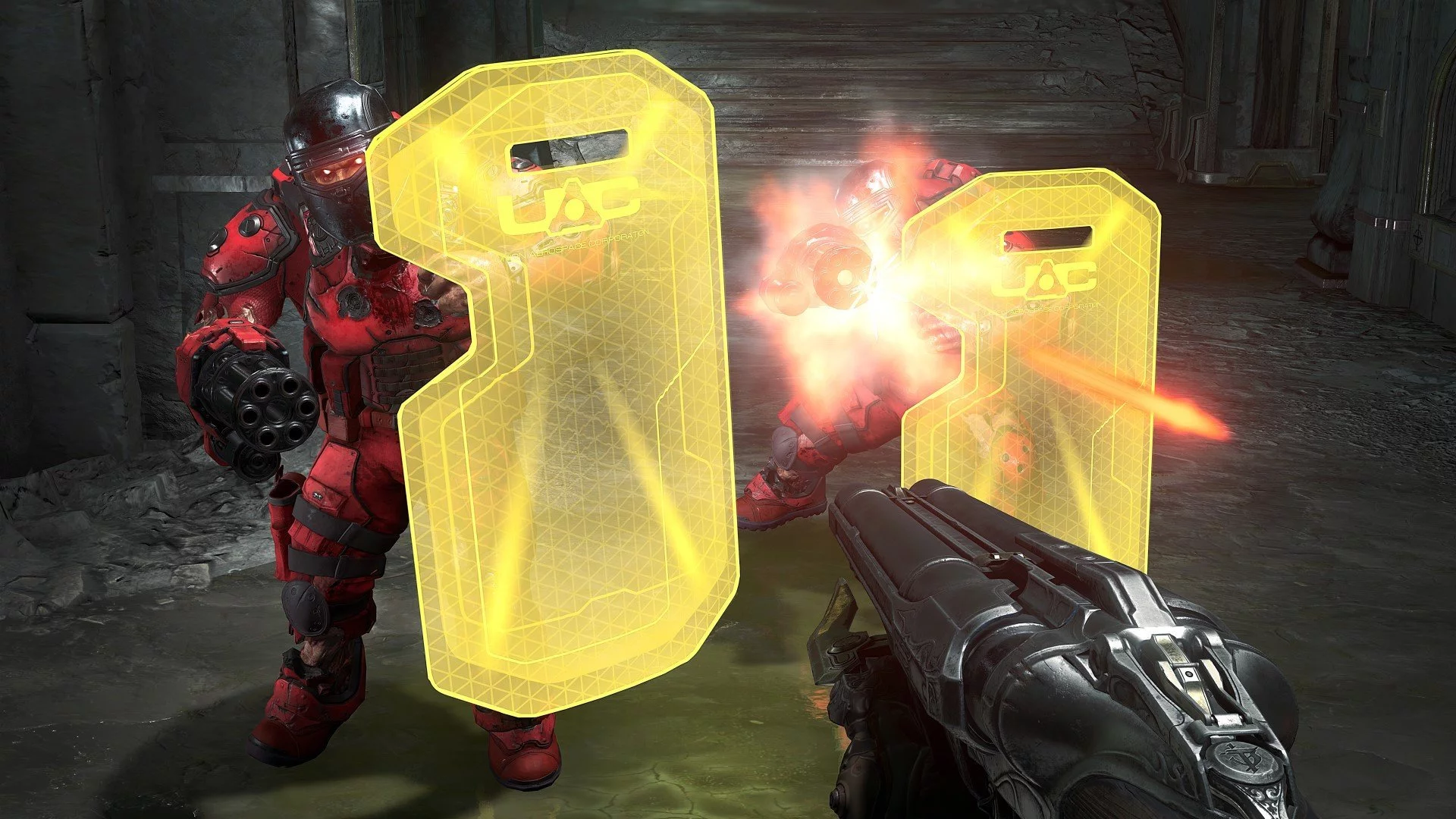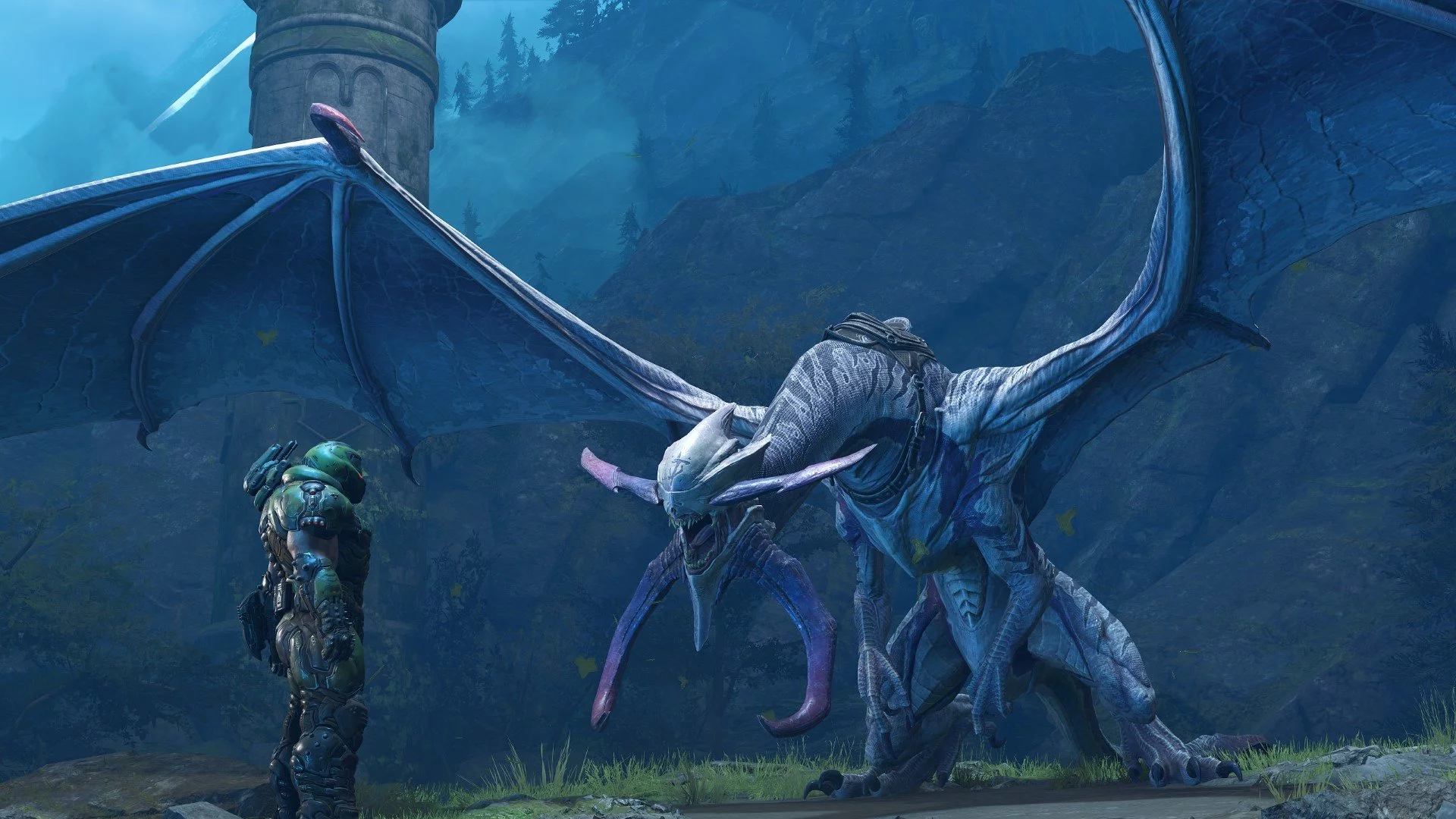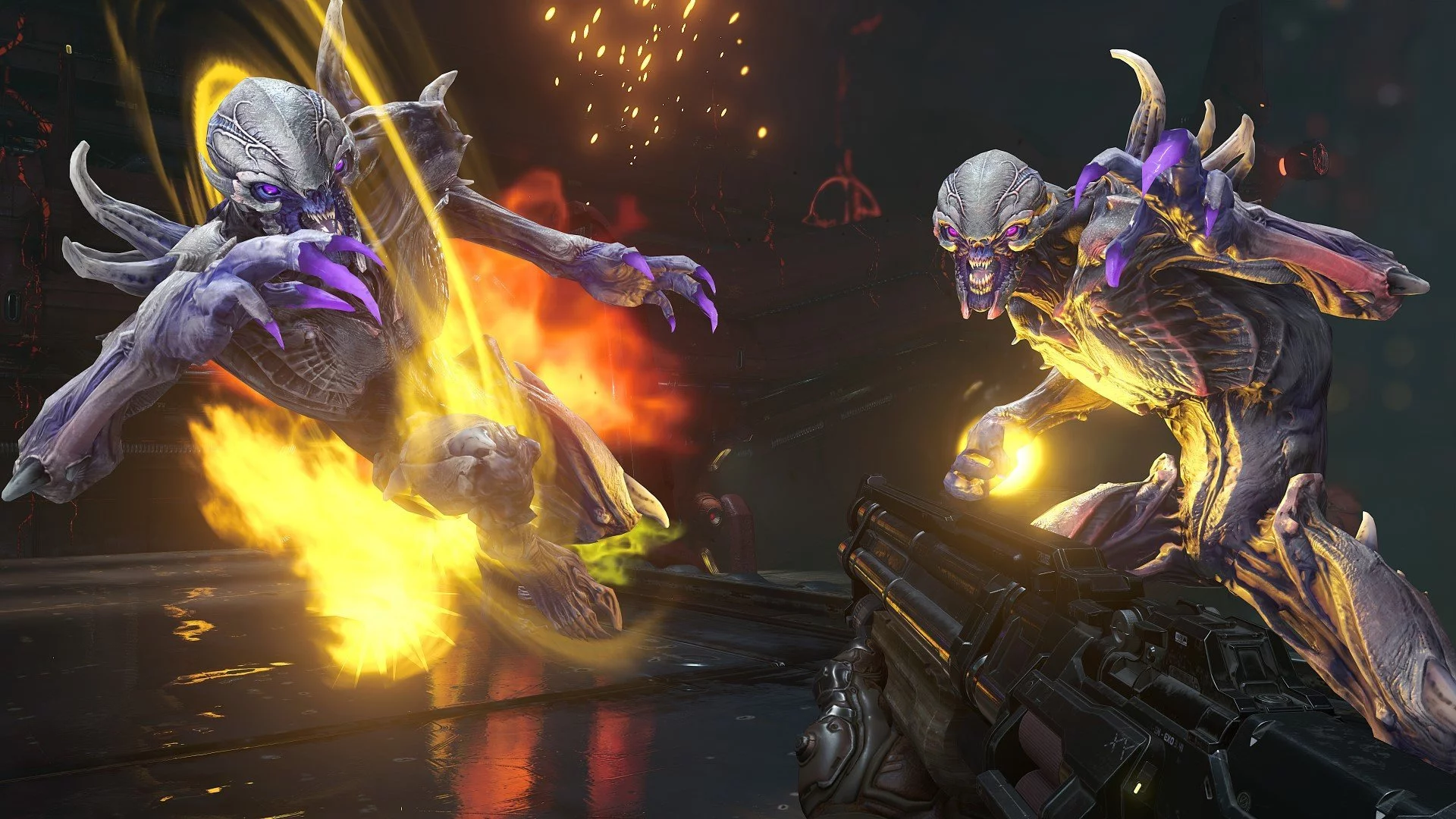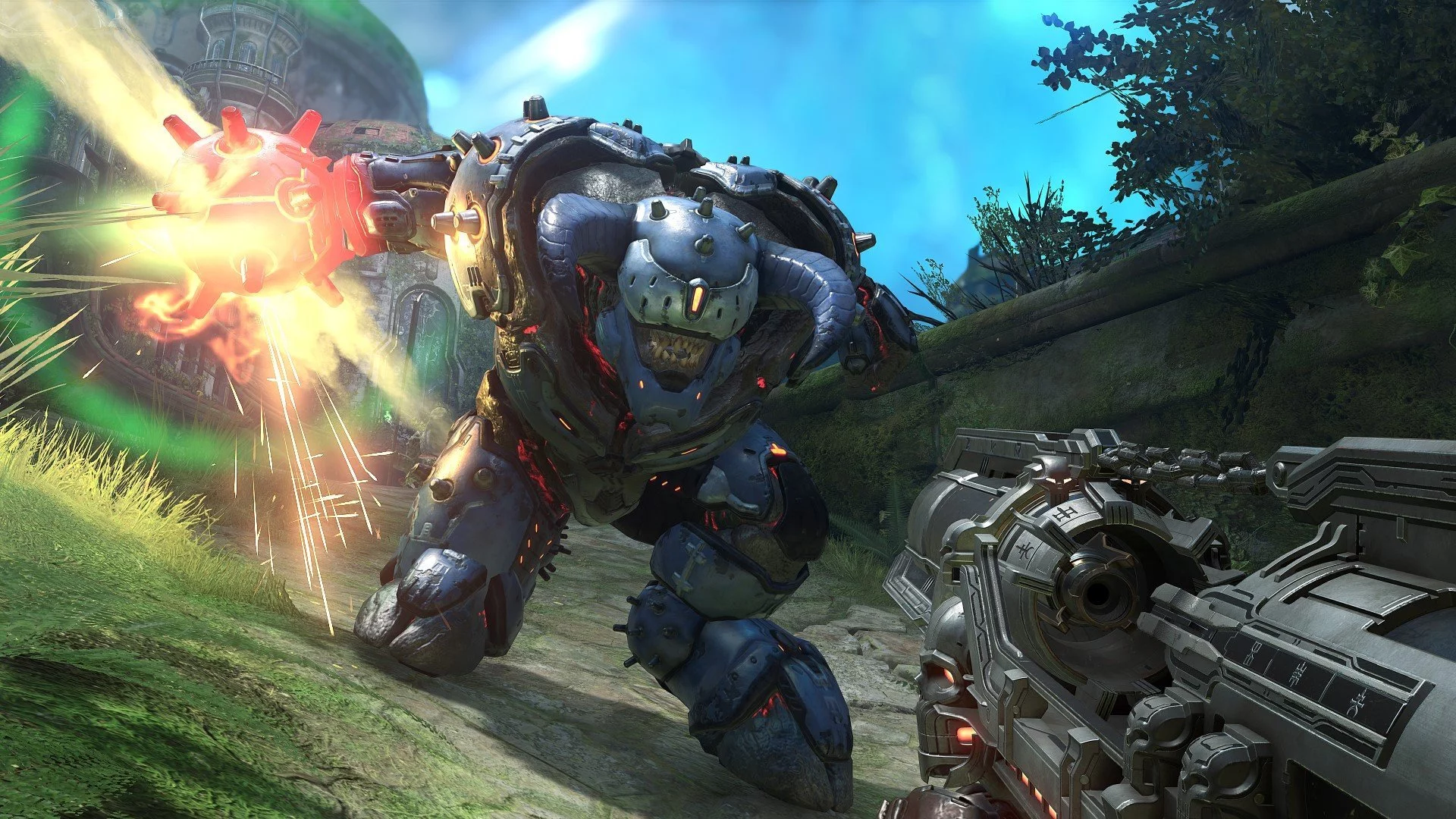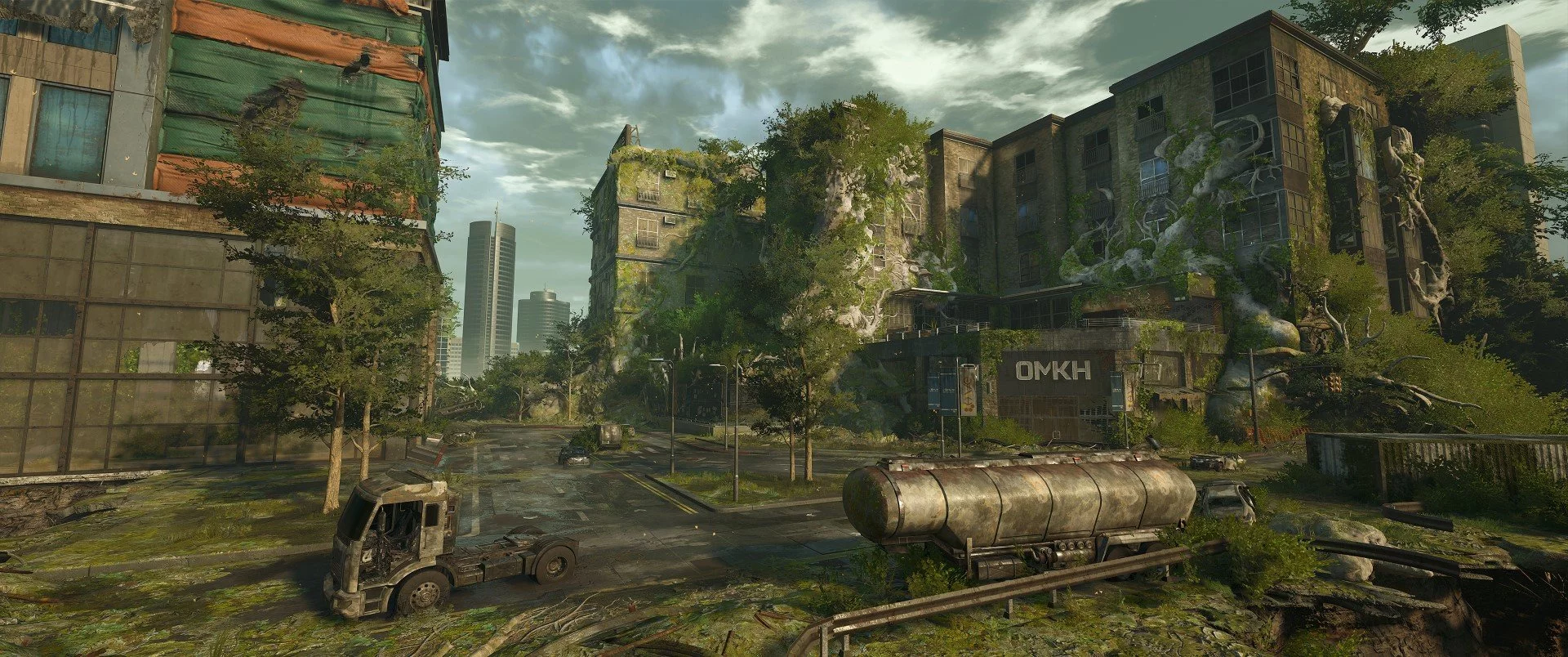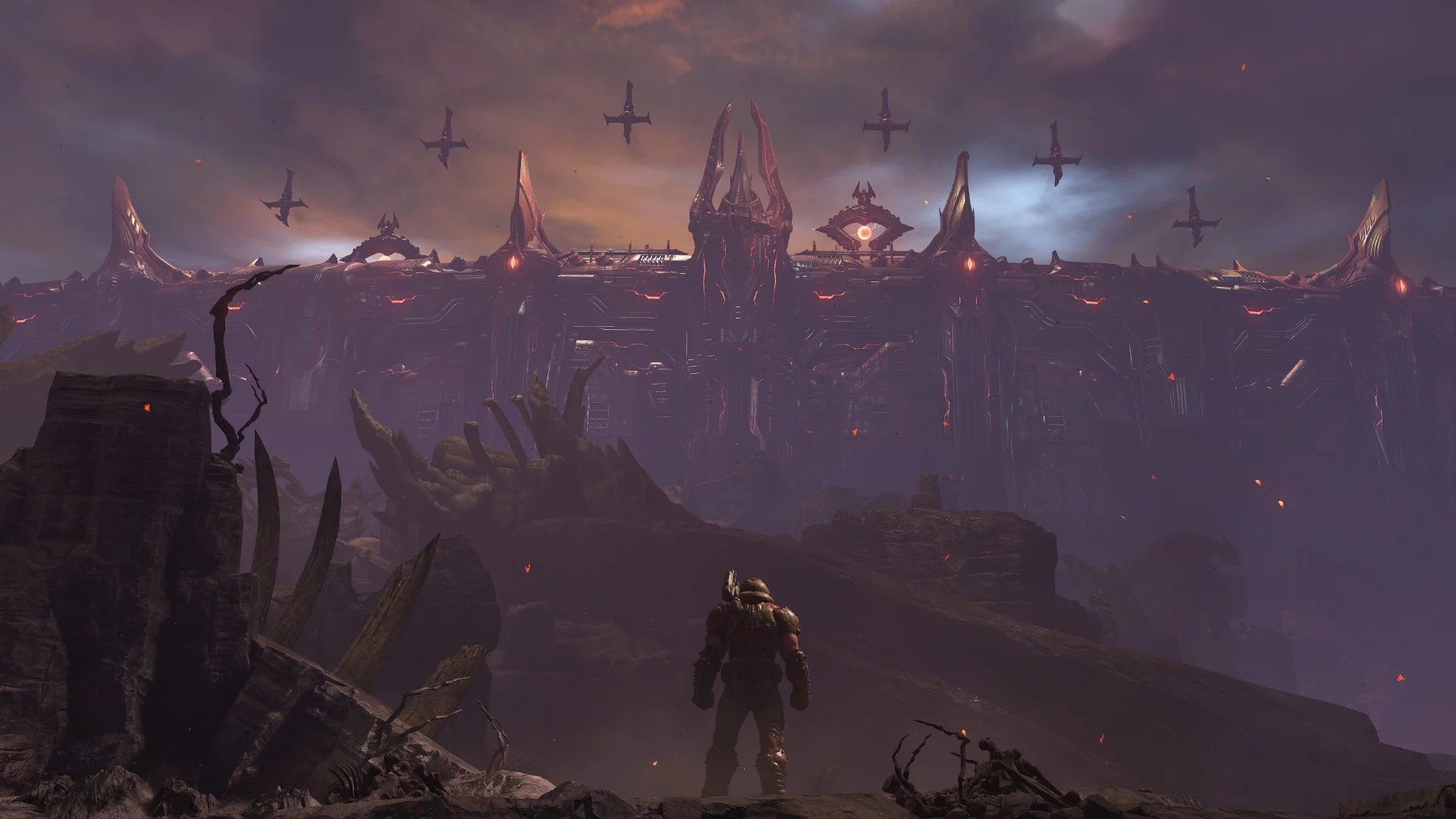It's time to rip, tear and compose.
Doom Eternal continues to grow with its Ancient Gods DLC. Ahead of the release of Ancient Gods Part 2 later today, Stevivor sat down with composers Andrew Hulshult (above, left) and David Levy (above, right) to discuss their contributions to the franchise that rips and tears.
Andrew Hulshult is no stranger to video game composition, having worked on titles like Duke Nukem 3D Reloaded, Quake Champions and Amid Evil in the past alongside a Doom mod called Brutal Doom. Bethesda’s so impressed by his work, it’s dubbed him a “sweet metal Viking”.
David Levy comes from more of a TV & film background, having composed tracks for Rooster Teeth productions including gen:LOCK, RWBY, Red vs Blue and more. He’s also served as a sound engineer and mixer, working with mentors who’ve produced tracks for the likes of Madonna, Aerosmith, The Rolling Stones, Creed and more.
More importantly, they’re both really awesome guys.
In conversation with Stevivor, the pair discussed how they’ve collaborated with one another to produce The Ancient Gods soundtrack, how video game composition differs (and is similar to!) that of TV & film, the freedoms id Software provided them, how Doom Eternal‘s core game influenced the DLC and much more. Clocking in at around 30 minutes, you can watch the interview or listen to the exchange below. The interview will also be automatically available to those who’ve subscribed to the Friendly Fire Show podcast.
Listen to the Friendly Fire Show here.
We’re also happy to provide a full transcript from the conversation, below.
Steve Wright, Stevivor: So my first question is, they’re probably all going to be Mickey Mouse, but the first one is extremely Mickey Mouse. Who does what? How does this work? There are two of you, there’s-
David Levy: I do everything! Sorry, I had to.
Andrew Hulshult: I just sit in the back and Rick Rubin it up. Yeah yeah. I’m on the couch like, ‘yeah, sounds good David.’
No, we both work independently and id [Software] will hand us kind of a spreadsheet of, ‘hey, we want you to work on this level and you to work on this level.’ And we both just kind of, we have our own sections of each DLC. So we get to focus on that and just work on each one.
David Levy: Yeah. It’s kind of segmented, but we talk all the time about everything and there’s a lot of information exchange about what we’re doing, how we’re doing it, the instrumentation, and we send each other work-in-progress clips throughout the process, just to make sure we’re in the same key when we need to be, because sometimes certain scenes will go… there’s a lot of cut scenes in there in the game. And we have to make sure — I was handling the majority of the cutscenes — and I have to make sure that I’m in the right key so it’ll flow really nicely. So I needed to know what key he was in and we would exchange tempos and things like that to make sure that everything kind of meshes when it’s in the game so it doesn’t feel too disjointed since it’s two people working on it, yeah.
Stevivor: Andrew, I want to kind of start with you because obviously this is your first official Doom soundtrack, but it’s not your first Doom soundtrack. Did that factor into you getting selected in any way? I know there was a bit of fan outcry to get you involved. How much do you think that helped?
Andrew Hulshult: I think that the fans are kind of the judge and jury and executioner in a lot of that stuff. Any game I’ve ever been with it’s who your audience is and who you can sell the product to, kind of dictates that a little bit. You know what I mean? If you’re working on a shooter and it’s in a certain vein of a certain genre and you happen to know who has kind of a little bit of a following, you might want to go with them, but to kind of focus in on the Doom thing, IDKFA [a total music conversion mod for the original Doom] , I do feel like played kind of a part with me being able to interface with the community and becoming friends with a lot of those people.
And we’re all just one really big, tight knit family, especially throughout the retro FPS revival that we’ve had since Doom (2016) that’s come along with that. Yeah, I do feel like that kind of did play a little bit of a part and it was just fun doing it. And back in 2013 when I first started it, and then it just started out as, ‘hey, I just kind of want to do this. This is kind of fun.’ And then it spiraled into, ‘this is probably one of the bigger things that you’ll do for a while, at least.’
And yeah, it’s followed me everywhere. So I do think that it did contribute in some way to it, for sure. But that also, I like to think that my work ethic tied into it a little bit more too, because I’ve shown that you can deliver on this front with this game and this front with this game and this front with this game. And so they’re like, ‘okay, not only can he make the cool mod stuff, and the music’s okay, but he can also hit these times that we need him to,’ and that kind of stuff.
Stevivor: And Quake Champions is a good example — it’s not a mod. It was an official thing. It’s similar, but not. Obviously Doom and Quake are very tied together, but how similar are soundtracks for Doom and Quake? Are there things that kind of flow through, or is it a completely different set of experiences to you?
Andrew Hulshult: I’d say that they’re a little more different. Quake‘s a little bit more on the feeling side, kind of with the Lovecraftian stuff going on. It’s a little bit more on the darker grungy feeling industrial side, whereas Doom feels a lot more like, how aggressive do you want this? Because there’s a knob that says 10, but we can take it to 20 if you’d like. But Quake under the direction of Adam Pile, whenever I was working on that, that was I’d say a totally different experience. We were working with Richard Long’s art. He was sending me that stuff. He’s the guy who does the art for Tentacles and Teeth. And I just got really inspired by it. And I was like, ‘man, this is really cool.’
And listening to Chris Rena’s work that he did with it, I was like, ‘how can I compliment this in a completely different way?’ You know what I mean? Something that still fits in the universe, but still works and isn’t just a carbon copy of what’s come before it. And it was just more about feelings and how can I pull emotions? And I feel like you can kind of feel that from track to track. Yeah, everybody likes to go over to Dimension of the Doomed. And they’re like, ‘yeah, metal!’ But if you go over to the other three tracks, there’s a lot of stuff that’ll start kind of pulling strings. There’s some of that stuff I’m like, ‘Oh man, that’s definitely pulling some emotional strings for me whenever I was done.’ And I really like that. If you’re winning or losing, it’s doing a little bit of that back and forth, but yeah, Doom is a lot more aggressive, in your face, but also you have to keep a pace with it too, where even whenever you’re walking around, you feel like a badass. Because that’s Doomguy is; he’s a badass.
Stevivor: Now this might be a gross assumption. And tell me if I’m wrong, Andrew, but I feel like metal is kind of your playground. I feel like that’s where you’re comfortable composing. Is that accurate or is that just me being a complete assh*le?
Andrew Hulshult: No no, it’s fair to assume that, for sure. I mean, I’m really good at it. Hold on. That sounds like I’m an assh*le.
Stevivor: No, no no. Do not be humble. That’s awesome. That is very metal. Take it.
Andrew Hulshult: Apparently, I’m okay at it. I have a grasp on what people enjoy about the genre. And I know what I like and I kind of just got a big filter. I kind of try to figure out, ‘hey, what’s something that I haven’t heard that my friend likes that he can show me that I can then take into the filter’ and kind of go, ‘all right, let’s put this now into the metal for this soundtrack,’ that kind of stuff. So yeah, that’s a fair assessment, but really I like to branch out more too.
The medieval stuff that I’m doing right now is completely different. It’s all synth and strings based. So is wrath, wrath is very heavy into ambience and very moody. And I’d say Quake‘s actually a little bit different too. Like we were saying, Quake has a lot more of those feelings to it. And there’s another game coming down the pipe in a couple of years, that it’s completely different than anything else. So while I really love this, and I’ll champion it all day long, no problem. You want some drums and some big ass f*cking guitars? Let’s go. I don’t mind stepping out and trying new things because as an artist, if you don’t do that, your environment starts to become toxic. You have to go out and try new things.
Stevivor: And David looking at the posters behind you, knowing about gen:LOCK and RWBY, obviously Doom is quite a different thing than just straight up metal.
David Levy: Sure is.
Stevivor: Where’s your comfort zone? Are you equally happy to be able to jump between things?
David Levy: I don’t have a comfort zone. I’m uncomfortable in every project I start. Doesn’t matter what it is. If it’s orchestral, if it’s something I can do, it’s just knowing what the sound is, what it needs to be and getting there. One way or another. This is definitely the most aggressive thing I’ve ever worked on. I feel like a lot of the tools that I used and a lot of techniques and stuff that I used in gen:LOCK were just amplified by a hundred on Doom. All the synth work that I’ve done with gen:LOCK seemed like a walk in the park in comparison to what needed to be done in Doom. And that’s the funny thing with Doom, is it doesn’t matter how much you think you’re pushing or your gear and your sounds, it’s never enough. We can always go more.
It’s a beautiful thing. And it can also be crippling at times because it’s like, am I hitting it hard enough? So yeah, to answer your question, it is vastly different from when I worked before, but also the whole metal and aggression thing is kind of stuff I grew up on. I’ve been listening to stuff since forever. I’m a drummer and I’m all about rhythms and all about heavy stuff. And it’s like all those rips and things are in the back of my head for as long as I can remember. And in Doom, I could just unleash it, which was a lot of fun. And things came out of me that I didn’t know I was able to do, which is always surprising if it’s up to the quality that everyone is expecting. I hope it is, but it was definitely a lot of fun to work on this. It was challenging. It was fun. It was terrifying. It was everything in one.
Stevivor: And I guess something that you might not be as used to? Again, if I’m over generalising, just yell at me, please. A lot of the Rooster Teeth stuff is scripted. It’s set, it’s ‘this much time happens. There’s a thing we need to fill in this much space’, where obviously a video game, there’s cut scenes that do that. But there’s the gameplay in general, which, anything can happen. How do you pivot into that?
David Levy: No no it’s true. It is very different. Because I come from television and film. And in television and film, you get a scene and you obviously, after you acknowledge what the scene is and what emotions you’re supposed to invoke, you go at it and you have it. It’s three and a half minutes. You have to hit this emotion, start playing, see how it affects everything. And you get feedback instantly as you’re writing it, what it’s doing and how it’s doing it. Now in games, this was my first Triple A title. I’ve worked on other games, but nothing to this scope, nothing of this magnitude. And the way the music works in this game is, you got to write the three different layers intensity. You got ambient music, you got light combat and heavy combat. And each section, each layer will have, let’s say five minutes of music. But you’re writing a five minute long track that needs to be segmented into many pieces that will be shuffled around by the engine.
So the player always gets a fresh take and a fresh feel when they play it because they never hear the music the same way, which is very different from film. Because in the film you write it from start to end, you’re done. In here, you have to see, all right, is the beginning going to work with part four out of seven and is the end going to work if you insert it in the middle? So it needs to be module. It needs to sound fluid and it needs to work no matter what.
So that one for me was a little hard to wrap my brain around at first. But once we got into it, I think I got the hang of it. And also, you have that within all those moving pieces within just one layer of intensity, you have to make sure that those will flow into the light combat and the ambient stuff. So everything needs to work together, which is incredibly challenging. So in that sense, it was very different from writing film. Yeah. Andrew, if you have anything to add, please, I don’t want to [crosstalk 00:13:29].
Andrew Hulshult: I mean, you hit all the nails on the head right there. That’s all the points.
Stevivor: I don’t want to talk about why Mick Gordon is obviously not doing the DLC composition, but he did the base game. I guess I’m curious to how much that factors into what you guys had to do? If there’s core Doom tenets that are just accepted by everyone? Or if there are core Doom tenets that are passed down from id [Software] being like, ‘you must do this’? How much of that did you have to factor in? Before you even get into the two collaborators thing, how much of that stuff did you have to factor into what you guys were doing for the DLC?
Andrew Hulshult: id pretty much gave us a clean slate whenever we started. Whenever they contacted us, one of the first things that they made sure to tell us was, ‘Hey, we want your vision of Doom. It doesn’t have to sound a certain way. We want you to have creative free reign on whatever you’re making.’ But of course, that being said, as an artist, you absolutely want to respect what came before you. And I love 2016’s and Eternal’s soundtracks. They’re awesome.
Mick had some amazing stuff even before that too, his Killer Instinct stuff is great. I’m a fan myself. I know David is as well, but yeah. They give us free reign, and I know that me and David had a couple of talks about it, where we were like, we really wanted to respect what come before us, because it’s a part of the IP on what’s come forward with two games prior, right? So you have Eternal and you have 2016 that both have a very unique approach to music, both a little bit different from each other, but still in the same core concept. And we were like, ‘okay, cool. How do we take this and build on it, but also put our own spin on it and our own creative touch on things? And how would you do this?’
And id was really cool about it. They just were like, ‘yeah, all right. Right on. You do whatever you want.’ And since we’re both fans of it, I think that we did the closest that we could, going back and forth and sharing files like, ‘hey, what do you think of this? How would you think of that? What do you think of that?’ I think that we QA’d it between each other enough to where things came out to where we like it, and we think a lot of other people will like it as well.
David Levy: Yeah.
Stevivor: Nice. So was it kind of the case of the two of you sat down and said. ‘it has to have A, B. And C’? Or one of you recorded a thing and said, ‘this is what I’m thinking,’ and you just built upon it?
David Levy: No, not really. Sorry, no, it was totally… oh oh, you mean just in general? Well, I think it’s kind of what Andrew was saying. We were inspired by what came before us, but we also were hired to do our own thing, would respect to what was done before. So that’s always in the back of our heads. And then kind of building on that, because, with the aggression and the certain elements that the Doom music almost kind of asked for. So we’re hitting those, but in our own way, with our own twist on it.
Andrew Hulshult: Yeah. Whether that comes with a synthesiser, guitar or something to start with. It could be anything.
David Levy: Right, right. But we never sat down and said, ‘we need this, this, and that.’ But there’s certain things, certain elements that we both knew that we got to hit. And it’s just the aggressive sense and the heavy drums and the guitars and just the overall kind of raw, aggressive, emotion that was established so well in the first couple games.
Stevivor: Are there certain segments or themes or styles that each of you can kind of take credit for and own as like, ‘yeah, this is my addition. This is my like signature element of this soundtrack’?
Andrew Hulshult: That’s a good question. The one that comes to mind for me, and it’s not really a signature thing per se, but it’s the fact that I was able to kind of work in with the base to make it sound real muddy and swampy for blood swamps. And some of those big bins, I was just like, all I could think was, you’re just walking through swamps of blood, what are the guitar rifts supposed to sound like? You know what I mean? So yeah, just some casual, everyday thoughts, but yeah, exactly. Especially if you’re driving on the freeway. But that was I think, the one thing between the two DLCs where I was like, ‘oh, that was kind of neat how that worked out.’ It doesn’t always work out like that, but whenever you get some really interesting assets that kind of clicks from artist to artist, that’s when those moments happen, but it doesn’t always happen, but hat was pretty cool for me. What about you, David? Do you have anything like that?
David Levy: I guess kind of similar in a way with Atlantica.
Andrew Hulshult: Yeah. I was going to say, I think I hear something in Atlantica.
David Levy: For sure. Yeah. I mean the whole oil rig, I started by just… the whole rhythm thing, there’s a lot of metallic elements in it, like pipes and such, just kind of embodying the surroundings. And then, there’s just all the synth work and everything that came along with it to compliment and enhance the visuals. But yeah. Other than that, I mean, just kind of playing off of whatever we have.
Stevivor: Now again, I’m probably grossly oversimplifying and just tell me off if I am, but if you think about Doom, when you think about Doom soundtracks, it’s like, ‘dun nun nun nun nun!’ Intense, guitar, you don’t think, just act, don’t pause, don’t stop, keep going. Do you have the chance to get to build in other… what’s the word I want? Not notes, but the light to the dark, the quiet, the calm, the relaxing to the super high intensity. Am I just completely overlooking those points?
David Levy: We got that. Yeah. All the ambient stuff. That’s the beauty of this game, is like you do have to write in three different intensities. So when you scavenge around and when there’s no fighting really, it’s all ambient music. And there’s a whole suite of music for that. And then there’s the live combat, which is little heavier, and then the heavy combat, which is as heavy as it gets. And that’s all those risks that you’re referring to. And also, for myself, I was seeing the majority of the cut scenes. So that was also a lot of fun because they hit different emotions all the time. So I was able to play more into the ambient stuff as well, which is not song-driven really? Because it’s more of a score because I’m scoring to picture. And I know Andrew, you’ve done a few of those as well, so I’m sure you can speak to that as well.
Andrew Hulshult: Yeah. Yeah. Whenever it’s the cut scene stuff, that’s kind of the moments where you can kind of pull on the emotional strings if you really want to, per se? I say emotional, there’s only a few emotions in Doom.
Stevivor: Intestines and emotions, both.
Andrew Hulshult: Yeah yeah, you’re pulling at the intestines of the player. Yeah. Yeah. No, but that’s some of the more musically dynamic parts that you’re thinking of I think, whenever you asked that question. So yeah, there’s moments like that, but in terms of what David was talking about with engine? Yeah, you can go from an area where there’s no one around, you want to make sure that the experience still has pace and still has feeling, trying to tell you, ‘hey, maybe you should keep moving. The music’s trying to tell you to keep moving.’
Other than the green lights everywhere. But yeah, the ambient stuff still has to keep a pace and still has to keep you moving. But also you want it to kind of showcase what’s around you as well. You kind of build it to the art that’s surrounding you rather than just kind of in a vacuum. So I’d say that that’s also part of the little bit more dynamic portion of it, is some of the ambient stuff. Light combat and heavy combat’s mainly for, ‘I need to rip your arm off as fast as I can and hit you with it.’
David Levy: The funny thing about those layers is, at least for me, I was really struggling with the light combat stuff. Because it’s a weird thing to hit.
Andrew Hulshult: It is. It’s probably the most difficult.
David Levy: It was. And I didn’t think that. The ambient, okay, you can hit the ambient, that’s no problem. And we can hit the heavy, we know that.
Andrew Hulshult: It’s finding that middle zone.
David Levy: The middle zone is very strange because it needs to be hard enough to drive you, but it can’t be too driving. So that was kind of challenging. It’s kind of like, that’s kind of a curve ball for me. I didn’t expect that to be as challenging as it was. Just little side note about the different things we have to hit.
Andrew Hulshult: Yeah, I think with each level it was like that. We were both like, ‘is the light combat good enough? Is the light combat good enough?’
David Levy: Yeah. Always.
Andrew Hulshult: And we’d bounce it back and forth with [id Audio Director] Chad Mossholder. And if there was anything that he was like, ‘hey, maybe think about something else here,’ or, ‘tweak that.’
But for the most part, we were cool with most things that we handed in.
Stevivor: Does the toughest to compose mean the most rewarding in the end? Or is it like, ‘no, I just hated light combat and it was so much more fun to do the heavy stuff’? What did you enjoy the most?
Andrew Hulshult: Well it wasn’t like, ‘I hate doing this’ or anything like that. It was more like…
David Levy: It was just challenging. Figuring out the right thing.
Andrew Hulshult: Yeah. It was just mentally challenging. It was like somebody asking you a question that you’re just like, ‘I have no answer for that. And I really need to think about that.’ You can come to a conclusion, no problem. But you got to make sure it’s the right conclusion. That’s all.
I think that I enjoyed the heavy combat the most throughout the entire thing because it’s bread and butter through Doom. And the further along that we got, the more sound design that Chad kind of was like ,’hey, maybe try this, maybe try that.’ And David started kind of pushing towards as well started saying, ‘hey, you should try out this gear. I have these plugins. They do really good work for me. You should try them on your sense,’ stuff like that. For me, I learned a wealth of knowledge from these guys and I feel like that all played a lot into heavy combat. So I think I had the most fun there.
David Levy: Yeah. I mean, I would be lying if I said it wasn’t the most fun. I often started with the heavy stuff. Yeah, I usually start with the heavy stuff and at least for the second DLC, I start with the heaviest and then I went to the ambient and then of course, I’m like, ‘shit. Where do I go now? Where’s that middle part?’ It’s tricky because you don’t know how much to push to instruments and how aggressive should it be? Because you are finding when you’re not fighting that much.
Andrew Hulshult: You need to make them sound different, yeah.
David Levy: Yeah. So yeah. Again, just to go over what Andrew said, it wasn’t that it wasn’t fun. It was just nailing the right sound was harder than… it was a little less obvious, less of an obvious road to get to it.
Stevivor: And you got to love a good PR note. Not technically, as far as we know, you guys are concluding the Doom Eternal saga. So was that a factor in having to get some of that really high intensity stuff perfect? Because that’s a lot of responsibility to have on your shoulders. Or maybe you didn’t even care about it at all.
Andrew Hulshult: I think it was just like, we just want the music to be great for a DLC. And we want it to be a great experience.
David Levy: Yeah. Overall, for sure.
Andrew Hulshult: That’s all. That’s all. Yeah.
David Levy: It wasn’t anything specific per track. It’s just like, ‘do not f*ck this up.’
Andrew Hulshult: Yeah yeah, if it’s not fun, throw it out. Yeah.
David Levy: Right. Exactly.
Stevivor: If you had the chance to return for a full proper Doom sequel, would you jump on it?
David Levy: Oh, absolutely not. No, of course. Of course. I mean, you’re kidding, this has been a dream job.
Andrew Hulshult: It’d be awesome. Working with id on the Ancient Gods was such a good experience. I’ve worked with a lot of developers in the past and this is just on the same slate of ,’I had fun here and I had fun here.’ There wasn’t any much of a difference. We’d be honoured to return to future projects. But for the time being, I’m just as excited to know what they would be as you are. I have no idea.
Stevivor: Well, from what I’ve heard, I am down for you guys returning as well.
Andrew Hulshult: Awesome.
Stevivor: Do you want to plug anything of your own? It doesn’t have to be Doom Eternal, we know that you’ve done the Doom Eternal DLC soundtrack. Anything you want to talk about before I let you go?
David Levy: I just learned that gen:LOCK is on HBO as of a week ago. I had no idea. I’m going to say that, because that’s awesome.
Andrew Hulshult: Where’s my royalties? I’m just going to make some uncomfortable phone calls in a little while, yeah. Comparison Guitars are awesome. They sent me right at the beginning of The Ancient Gods, the first one, they sent me a seven string and then I went and bought an eight string from them because I really liked them. And I just signed with them and yeah, you should check them out there. They’re seriously amazing guitars. And they’ve been on the entire DLC.
David Levy: I’d like to add that I’m still waiting on sponsorship. I got nothing.
Many thanks to Andrew and David for their time.
Doom Eternal is available now on Windows PC, Xbox One, Xbox Series S & X, PS4, PS5 and Switch. Ancient Gods Part 2 is expected later today.
This article may contain affiliate links, meaning we could earn a small commission if you click-through and make a purchase. Stevivor is an independent outlet and our journalism is in no way influenced by any advertiser or commercial initiative.


